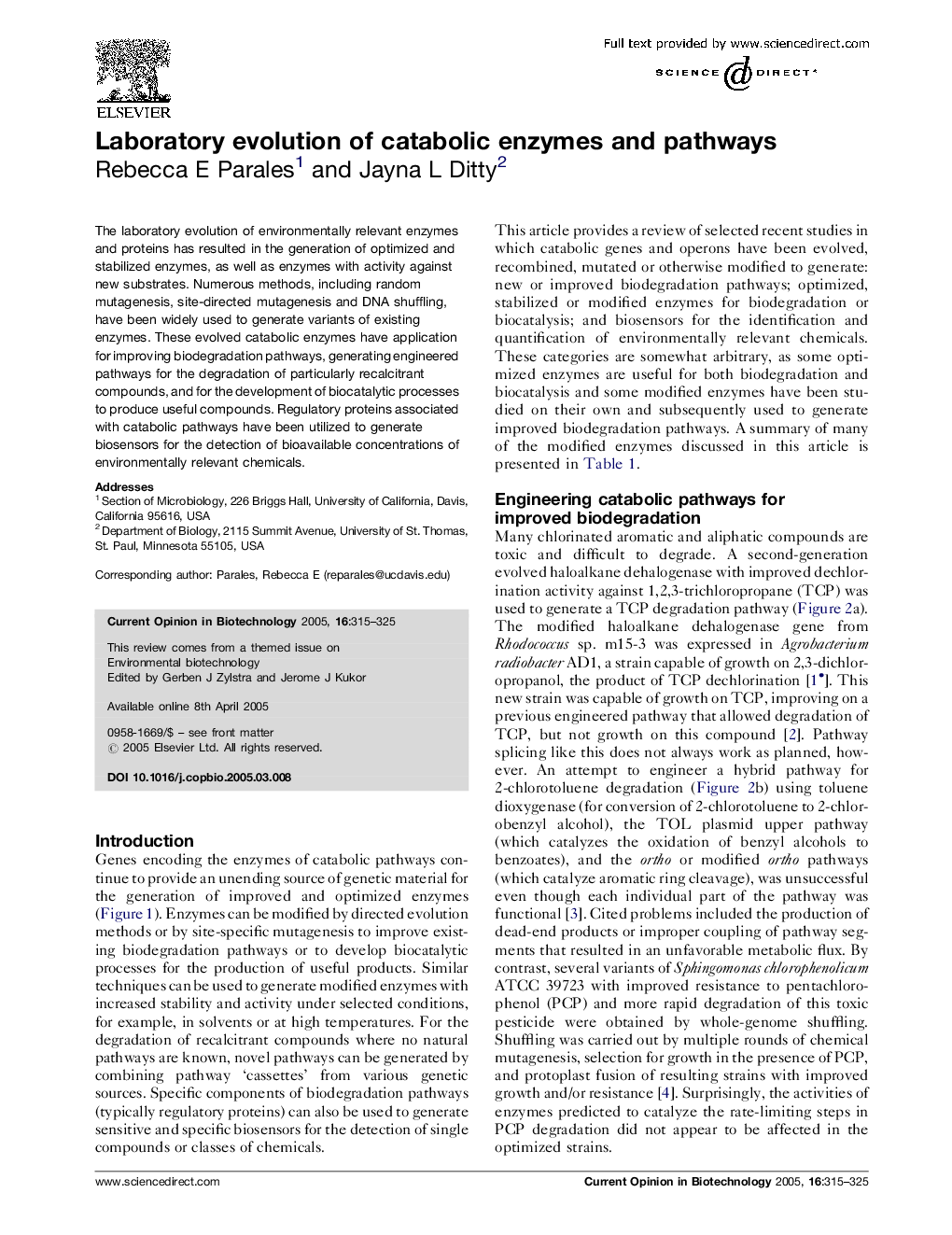| Article ID | Journal | Published Year | Pages | File Type |
|---|---|---|---|---|
| 10232295 | Current Opinion in Biotechnology | 2005 | 11 Pages |
Abstract
The laboratory evolution of environmentally relevant enzymes and proteins has resulted in the generation of optimized and stabilized enzymes, as well as enzymes with activity against new substrates. Numerous methods, including random mutagenesis, site-directed mutagenesis and DNA shuffling, have been widely used to generate variants of existing enzymes. These evolved catabolic enzymes have application for improving biodegradation pathways, generating engineered pathways for the degradation of particularly recalcitrant compounds, and for the development of biocatalytic processes to produce useful compounds. Regulatory proteins associated with catabolic pathways have been utilized to generate biosensors for the detection of bioavailable concentrations of environmentally relevant chemicals.
Related Topics
Physical Sciences and Engineering
Chemical Engineering
Bioengineering
Authors
Rebecca E Parales, Jayna L Ditty,
